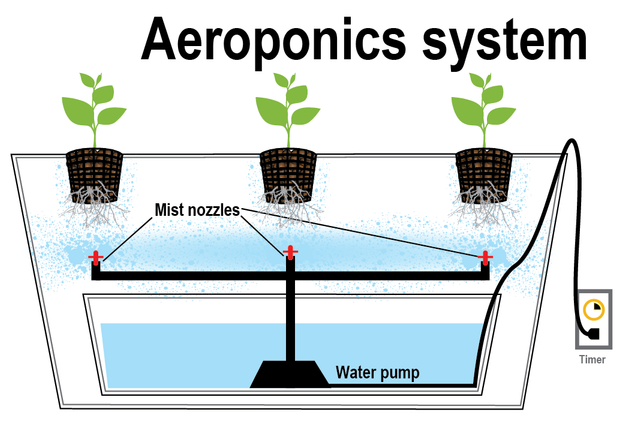What is an Aeroponics System?

Aeroponics is a term used in reference to growing plants without using soil. The plant roots hang free in a container where a programmed mist delivers water and nutrients at set intervals to nourish the plant. Using an atomized spray or fog to mist the roots is different than regular hydroponics where the roots remain bathed in water. The result of air surrounding the roots with an aeroponics system has several advantages:
The plant receives more oxygen resulting in faster growth and stronger stocks. Photosynthesis uses carbon dioxide by plants to convert sunlight into sugars releasing oxygen, but oxygen is also needed by the plant to break down sugars into other forms of energy.
Plants have fewer diseases because of decreased exposure to pathogens, especially in an enclosed root system. Should a plant become infected it can be removed from the system without infecting surrounding plants due to the proximity of the plants.
Less water and nutrient solution is required because the precise sized droplet allows the plant to absorb water and nutrients using osmosis with efficiency.
Minimal energy is needed to run the system due to few movable parts, and the plants spend 99.98% of the time in air and 0.02% in direct contact with the misting solution.